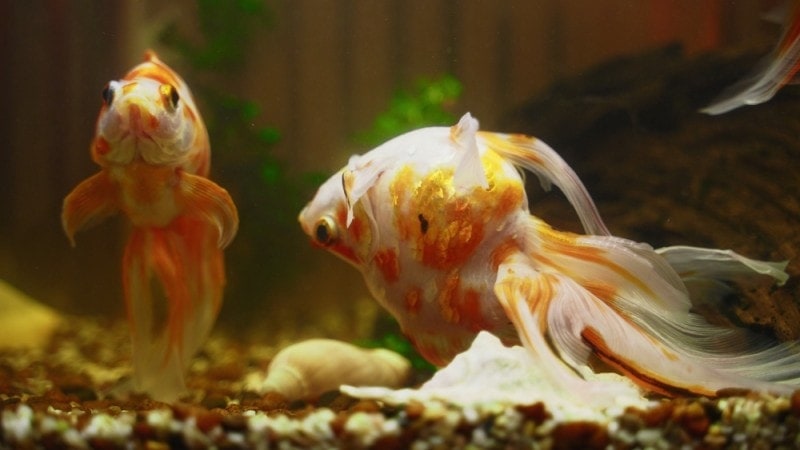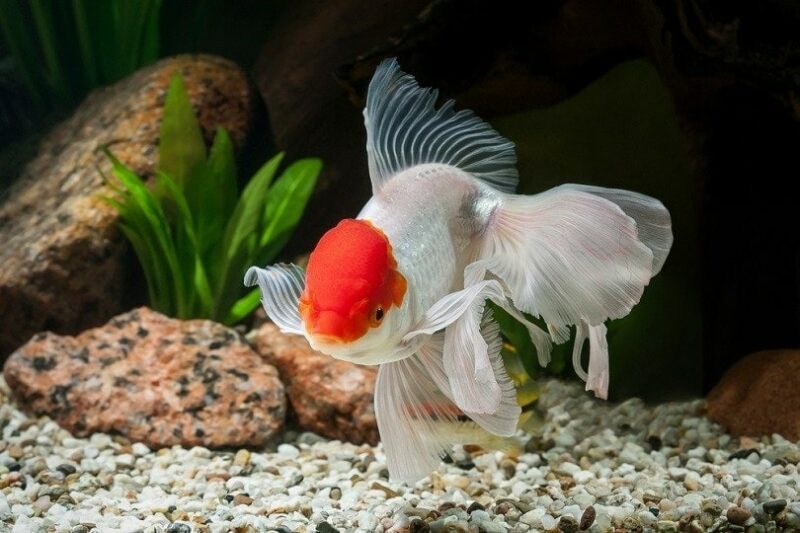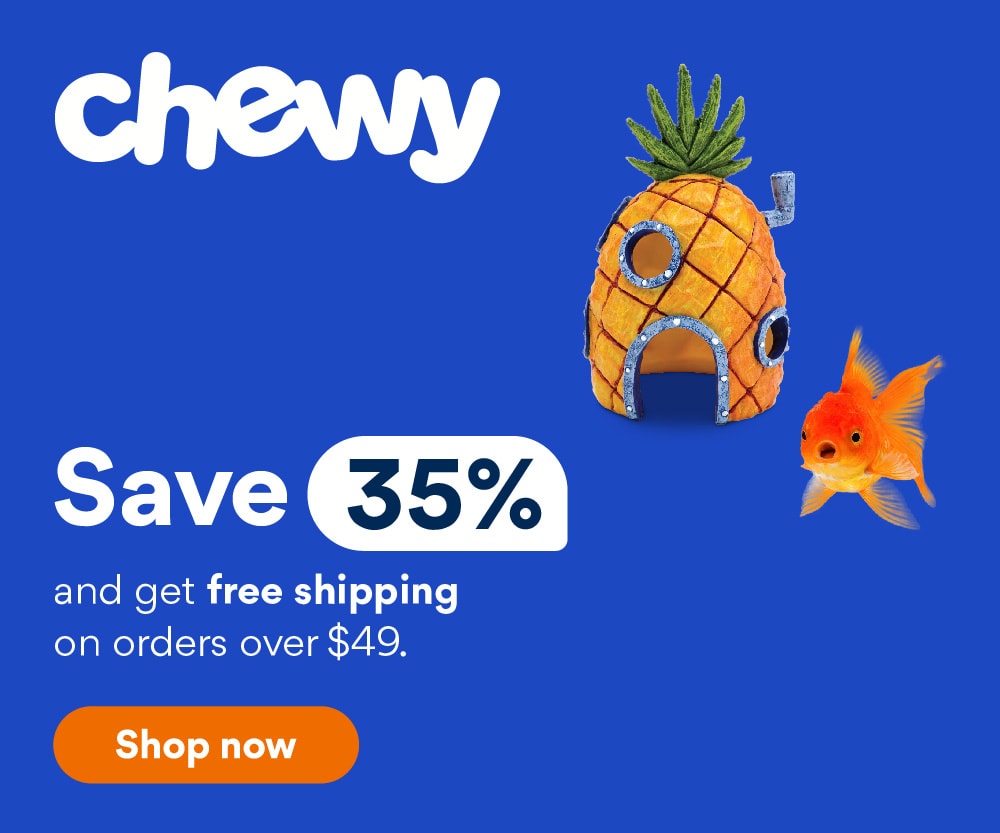Do Goldfish Eat Each Other or Other Fish? Temperament & Habits Explained
Updated on
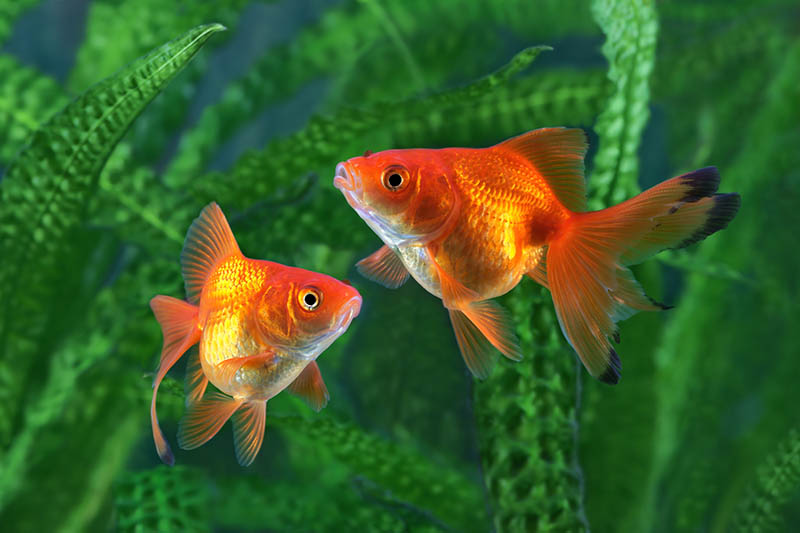
Do you remember your first pet? It must have been a goldfish, right? Goldfish are one of the most common fish children keep as their first pets. After all, they are small, convenient to look after, and super adorable!
However, a common myth is that goldfish eat each other or other fish when placed in the same tank. So, how true is this belief? Generally speaking, goldfish aren’t aggressive or predatory, so they won’t harm other fish in the same environment.
But things are different when these fish are hungry and left with no food. In this case, a goldfish may eat bite-sized fish or baby goldfish to survive. So, if you’re planning to get a goldfish, keep reading till the end to learn everything about this behavior.
Do Goldfish Eat Other Goldfish?
Goldfish may produce hundreds of eggs after mating. Interestingly, these fish don’t act as though they have any paternal instincts, so they don’t recognize the baby goldfish as theirs. Hence, they are more likely to eat their babies when hungry.
Some baby goldfish fall prey to giant goldfish or other predators. However, once these tiny fish are big enough and able to swim around, their predation drops significantly.
Do Goldfish Eat Other Fish?
When browsing for food in a fish tank, a goldfish may encounter many small fish, which they can consume accidentally. The entire process is non-aggressive, so blaming a goldfish for this behavior isn’t right.
For instance, goldfish and snails make great companions. You can keep them in the same tank, considering snails are not smaller than goldfish. Yet, these fish can eat tiny snails accidentally or deliberately when food is scarce.
Goldfish also eat snail eggs, which may benefit you if you don’t want the small insects to reproduce. Similarly, you should refrain from keeping shrimp in the same tank as your goldfish. Shrimp are tiny and can easily fit in the goldfish’s mouth.
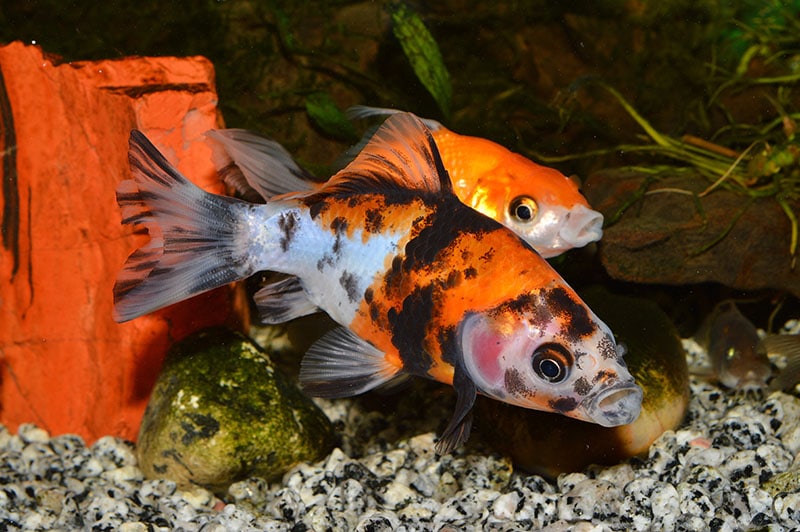
Why Do Goldfish Eat Other Fish?
As mentioned earlier, a goldfish may eat anything that is small and fits its mouth. Small fish, insects, and bugs are their favorite because they enter their mouth effortlessly and are easy to chew and finish. However, you may find your goldfish eating a big fish in some circumstances.
For example, a goldfish usually hates having its tank too crowded with other species. So, when you add more fish to the tank, they become aggressive and territorial. It provokes them to attack or eat big fish to mark their territory.
You shouldn’t confuse goldfish with cannibals. In fact, they love living with other fish, provided that the tank is not overly crowded. As a fish lover, you should not put any weak or small fish in the same aquarium as goldfish.
Does a Goldfish Eat Dead Fish?
Since a goldfish is usually found searching for food, you may also find yours eating a dead fish. For some goldfish, eating the dead fish must be the best way to remove it from their home and curb their hunger.
If you spot a dead fish in the tank, remove it immediately. A goldfish is faster than you imagine, so they may start eating the fish way before you could have imagined.
Which Fish Are Safe With a Goldfish?
Many aquarium owners prefer goldfish for multiple reasons. They are adorable and remain calm most of the time. If properly fed, a goldfish remains friendly with the rest of the water species, creating a harmonious environment.
Despite that, you must consider a few factors when selecting mates for your goldfish. It is imperative to note that a goldfish is a freshwater dweller. This means that this fish may not get along with a saltwater fish.
To create a safe environment for a goldfish and the rest of the mates, ensure that the water’s acidity and alkalinity range from 7 to 8. This is essential for the different types of fish to survive together.
Introducing more goldfish the same size as the fish already in your tank is safe. Since they are omnivorous, goldfish share a positive relationship with fish from the same family.
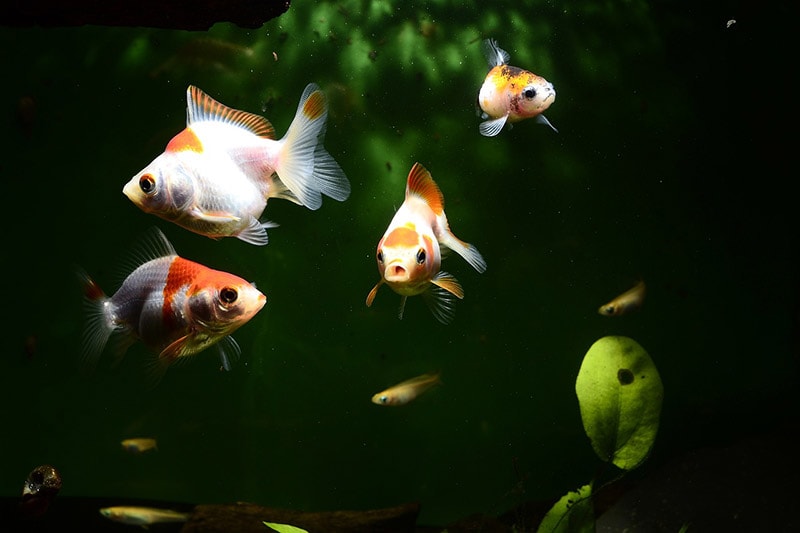
What to Consider When Keeping Goldfish Together
Do you still plan to keep goldfish as a pet? If so, you must wonder how many you should buy to let them live safely together. This actually depends on several things.
When keeping a goldfish, ensure all the tank mates are the same size. This is to avoid small fish being eaten by the big ones.
Secondly, ensure to provide enough space for each fish so they don’t feel crowded. For instance, spare 20 gallons for one goldfish and 10 extra gallons for any additional fish that you may add.
You may wonder why this fish requires more water than any other fish may demand. It is because a goldfish produces a lot of waste. Besides, they grow faster than other species, requiring more space than the rest.
Also, when you have a large tank for your fish, it is less likely to get cramped. This makes it convenient for small fish to hide from their hunters.
Don’t forget to get a large tank with rocks and plants, so your fish can live and survive in a safe and healthy environment. But make sure you clean your tank regularly, as the one with a large size may get polluted faster than a small tank.
Final Words
If you love having goldfish, make sure that you feed them well and provide high-quality water so they can live peacefully with other species. Failure to do so may increase their chances of eating other fish or even their own babies.
A goldfish is not usually a predator. But when aggressive, they can eat their tiny and weak tank mates. So, before that happens, separate big fish from small ones or invest in a safe tank.
Featured Image Credit to: Mirek Kijewski, Shutterstock




